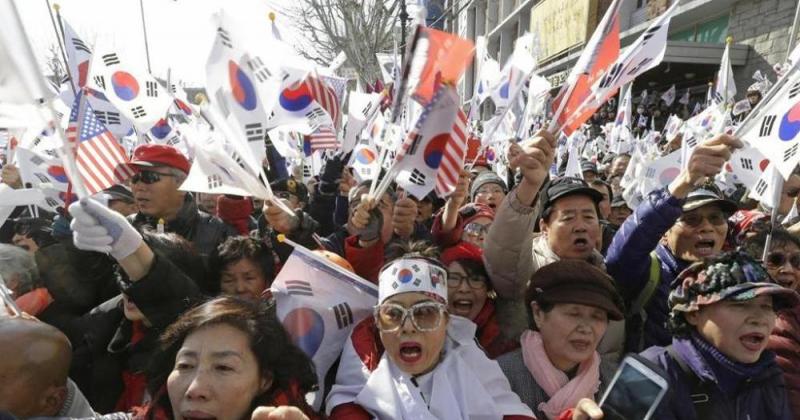President Park Geun-hye’s impeachment opens a new historical phase. Citizens, and among them Catholics, are now the real protagonists of democracy.
South Korea turns the page. After a long Lent, it is moving towards a dawn of resurrection. The Constitutional Court upheld the impeachment, already approved by Parliament in December last year, for President Park Geun-hye, who has been deposed through a procedure used for the first time in the democratic history of the country. The Supreme Court agreed on the documented evidence that the president’s confidant and “guru”, Choi Soon-sil, was wrongfully informed over state affairs and therefore has influenced the choices of the leaders of the country. Park has not only disclosed confidential documents, but also provided funding for millions of dollars to two foundations attributable to Choi, daughter of a well-known shamanic leader. Koreans are now called to vote within sixty days. In the capital city of Seoul, people took to the streets in opposing demonstrations, pro and against the former president. Chronicles record the death of two protesters, in incidents that occurred during the rallies. These negative events however, have not changed the overall positive idea that the Korean Church has on the entire affair, explains Lazzaro You, bishop of Daejeon and president of the Commission “Justice and Peace” of the Korean bishops, in an interview with Vatican Insider.
Monsignor You, how do you judge the epilogue of this political crisis in Korea?
“The political crisis has shaken the country and generated unease and suffering across the nation. For months, the instability and uncertainty about the future weighed upon us. But now, we see a radiant future ahead of us. There is a new hope for the Korean people, which will encourage all of us to restore unity and create an atmosphere of brotherhood. We are conscious of living a crucial moment in the history of Korea. We are really sorry for the two demonstrators who lost their lives during the incidents and invite the country to regain unity. “
How do you assess the many popular demonstrations that have shaken the nation?
“We can say that the massive reaction of the Korean people to the crisis is undoubtedly a very positive aspect in this painful affair. People have spoken aloud in a peaceful way and with great public spirit. We have witnessed an awakening of the citizens’ conscience. Citizens have been the real stars of this turning point where, for the first time in the history of Korean democracy, a president was impeached. Park had a self-sufficiently way of managing power, and this attitude was not forgiven. The Koreans took to the streets with candles to say that corruption and abuse of power are intolerable. Citizens have recalled that in a democracy, power is to the people and now they are happy for the Nation’s turning point.”
How did Korean Catholics experience the crisis?
“The Korean faithful - about 11% of the population - were alongside all other citizens in demanding justice and transparency. They have always supported the rule of law and democracy. Today they welcome this breakthrough news animated by hope toward the future. All Koreans, including Christians, nourish a strong desire for justice and honesty. Now all citizens are called to witness these values in their personal lives. As Catholics, we feel builders of justice, peace and the common good of the country. We reject all forms of violence, and are ready to contribute to re-establish in Korea a climate of true unity. Good can spring from evil and after all this suffering, we are ready to prepare the resurrection of the Korean nation. “
You are also President of the Commission for Korean martyrs. How is your job going?
“The Holy See has just recently granted us the permission to celebrate the beatification of the Korean Martyrs at national level and not just diocesan (the martyrs belonging to different dioceses). The beatification process covers two types of martyrs: the first date back to the period of the first evangelization (1785-1879) and the second to the last century. In the first group, there are 133 between the laity and priests, victims of persecution of the Joseon Dynasty. The second group is of martyrs of the twentieth century: 81 victims of the communist regime including priests, bishops and laity. Persecution is strongly tied to the emergence of the Communist Party in Korea. Some are martyrs of the 1901 Jeiu massacre, others are victims of persecution occurred after the nation split into two parts. Among them the bishop of Pyongyang and Francis Borgia Hong Yong-ho.”
